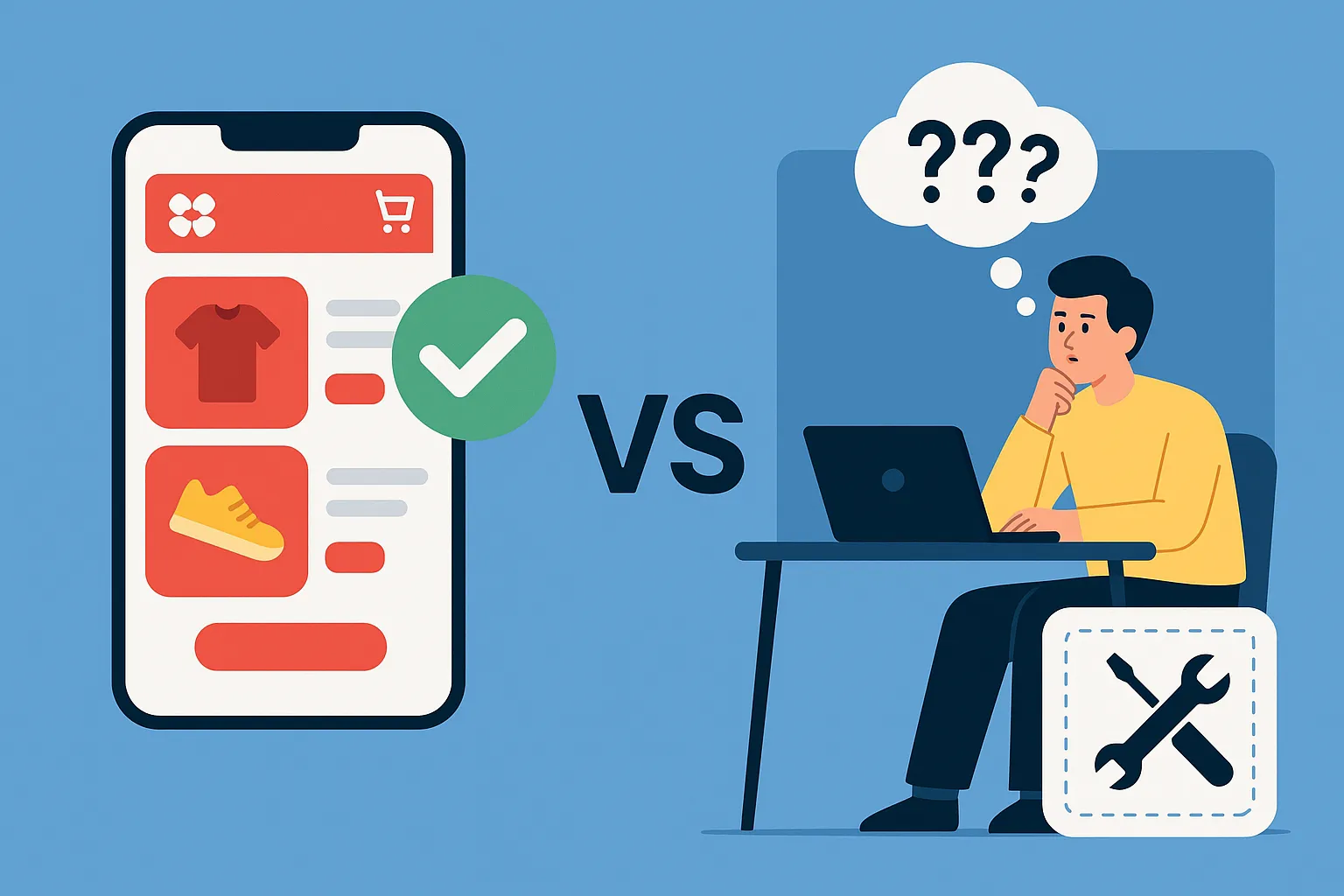Scrolling through startup Pinduoduo clone twitter lately feels like watching a high-stakes reality show: founders pitching on X Spaces, investors live-tweeting term-sheets, and customers demanding next-day delivery on everything. In this “blink-and-you-miss-it” climate, building a social-commerce rocket from scratch can feel like fastening the seatbelts after take-off. If that déjà-vu sounds familiar, stick around—because today we’re talking about why many young companies skip the from-zero slog and jump-start growth with a Pinduoduo clone
Picture this: You’ve finally convinced your college buddy-turned-CTO to mock up a group-buying feature. Suddenly a wild list of must-haves appears—real-time inventory, social invites, gamified coupons, live video, the whole shebang. The budget balloons faster than a flash-sale and the timeline drifts beyond next quarter’s OKRs. Meanwhile, a rival brand quietly ships a polished clone in six weeks and starts trending on Reels. Ouch.
That scenario plays out more often than you’d think, which is precisely why founders are eyeing ready-made Pinduoduo-style platforms instead of bespoke codebases. In the next few minutes we’ll break down the cost math, tech perks, and market signals—sprinkled with stories, stats, and a dash of tough love. By the end, you’ll see why an out-of-the-box Pinduoduo clone from Miracuves can feel less like a shortcut and more like business judo.
Read More : What is Pinduoduo App and How Does It Work?
1. Why Pinduoduo-style shopping clicks with modern buyers
Pinduoduo didn’t just copy Etsy or flip Amazon’s playbook; it hacked the dopamine loop of social commerce—letting shoppers team-up, unlock group discounts, and brag about it on WeChat. That “shop-together, save-together” vibe transformed bargain hunting into a digital block party. No wonder the platform hit 911 million active shoppers in 2023—putting it neck-and-neck with Alibaba’s behemoth user base.
Behind those numbers is a bigger trend: the share of global e-commerce revenue driven by social channels is projected to reach 22 percent by 2028.Translation? Friends, followers, and micro-communities now shape purchase intent as much as brand ads do. If
your storefront doesn’t weave TikTok-like engagement into the checkout flow, you’re effectively selling VHS tapes in a Netflix world.

2. The sticker shock of custom social-commerce builds
Let’s address the elephant in the code repo: time and money. Engineering a production-grade group-buying engine means:
- Real-time deal orchestration (sockets or MQTT)
- Payment splitting & escrow logic
- Dynamic pricing rules (think Uber surge, but for rice cookers)
- Viral referral workflows & shareable deep-links
- Gamified coupons, mini-games, loyalty dashboards
- A/B testing harness for continuous tweaks
Kick that off with a six-person squad—PM, two full-stack devs, QA, designer, DevOps—and you’re staring at $40k–$60k per month in burn, plus 8-12 months of dev time. Miss one Q4 shopping season and your CAC/LTV spreadsheet implodes.
3. Clone-versus-Custom: the feature-parity smackdown
| Decision Lens | Custom Ground-Up | Miracuves Pinduoduo Clone |
| Launch Speed | 8-12 months prototyping & QA | 30-90 days including branding |
| Core Feature Depth | Starts at zero | Group-buy engine, social feed, coupons, live-commerce, payment split pre-built |
| Scalability Ceiling | Depends on in-house microservices | Horizontal autoscaling baked-in |
| Future Customization | Flexible but expensive | Modular SDKs & open APIs |
| Maintenance Load | Your team 24/7 | Miracuves handles infra & security patches |
4. Miracuves Clone Deep-Dive: under the hood
Social Group Purchase Flow
Friends form a buying circle, the unit price drops in real-time, and a live progress bar triggers FOMO. Push notifications nudge laggards—“Only two buddies needed, deal closes in 30 mins!”—boosting conversion.
Integrated Logistics & Agro-Sourcing
Borrowing Pinduoduo’s farmer-to-door DNA, our backend lets you plug in rural co-ops or urban micro-warehouses. Geo-fencing picks the cheapest last-mile courier automatically.
5. A (fictional) founder tale: “GrocerGo”
Ankita runs a Mumbai-based fresh-produce startup. Investors love her mission—fair prices for farmers—but hate her runway math. She tries a local dev shop; the first sprint invoice lands at ₹18 lakh and they haven’t even touched referral links. Panic dialing Miracuves, she licenses our Pinduoduo clone, rebrands to GrocerGo, and ships an MVP .
Week 3 post-launch: daily active users hit 40k, thanks to WhatsApp group buys in housing societies. Week 8: gross merch value crosses ₹1 crore; investors return her calls. Her original dev spec? She quietly archived it in Notion—next to an emoji that reads “dodged a bullet.”
6. Hidden bonuses you don’t spot on day 1
- Talent arbitrage: You don’t need hard-to-hire GoLang or Erlang vets; a mid-level Node dev can tweak modules.
- Security certifications: PCI-DSS & GDPR compliance packaged from day zero.
- Analytics pipelines: Event streams into Redshift/BigQuery so growth teams track cohort LTV without extra SDKs.
- Community plugins: Reward referrals with in-app tokens or NFTs—yes, we’re ready for Web3 pivots.
7. Future-proofing: clones as living platforms
Some founders worry a clone means “locked-in legacy.” In reality, Miracuves’ clones are headless-friendly. Want to bolt on AR try-ons or voice shopping next year? Point our GraphQL gateway at your new front-end and keep trucking. The social-commerce field itself is sprinting ahead: Pinduoduo now experiments with AI-generated product descriptions and on-the-fly pricing. (Its average MAU still hovers above 750 million as of early 2024.)
Staying nimble is easier when your core engine is vendor-maintained. Let your product team chase Gen-Z trends—Miracuves watches the low-level patch notes.
Conclusion :
Speed, savings, and social stickiness—that’s the triple-threat founders get when they choose a Pinduoduo clone over a green-field build. The market is tilting toward group-centric shopping and AI-fueled personalization. Early movers will own the mind-share before the next viral hashtag hits.
At Miracuves, we help innovators launch high-performance app clones that are fast, scalable, and monetization-ready. Ready to turn your idea into reality? Let’s build together.
FAQs
1. Does “clone” mean my app will look identical to Pinduoduo?
Not at all. Think of it as a pre-built chassis—you repaint, add custom dashboards, and tweak the driving mode. Users see your brand.
2. How much customization is possible post-launch?
UI themes, payment gateways, loyalty rules, even core algorithms are modular. Most clients push over-the-air updates day without touching our kernel code.
3. Will investors frown on a clone approach?
Investors back traction. If a clone helps you hit KPIs faster—CAC, retention, revenue—they’re usually thrilled. Show them data, not hand-coded vanity.
4. Can I integrate Web3 tokens or NFTs later?
Yes. Our clone exposes REST and GraphQL endpoints—perfect for plugging in token minting or wallet login when you’re ready.
5. What about scaling to millions of users?
Miracuves deploys on autoscaling Kubernetes clusters. The same stack already handles spikes in live-commerce events for other clients.
6. How does pricing work?
Simple: one-time license + optional monthly support. That covers source code, documentation, and free minor version upgrades.
Related Articles :








